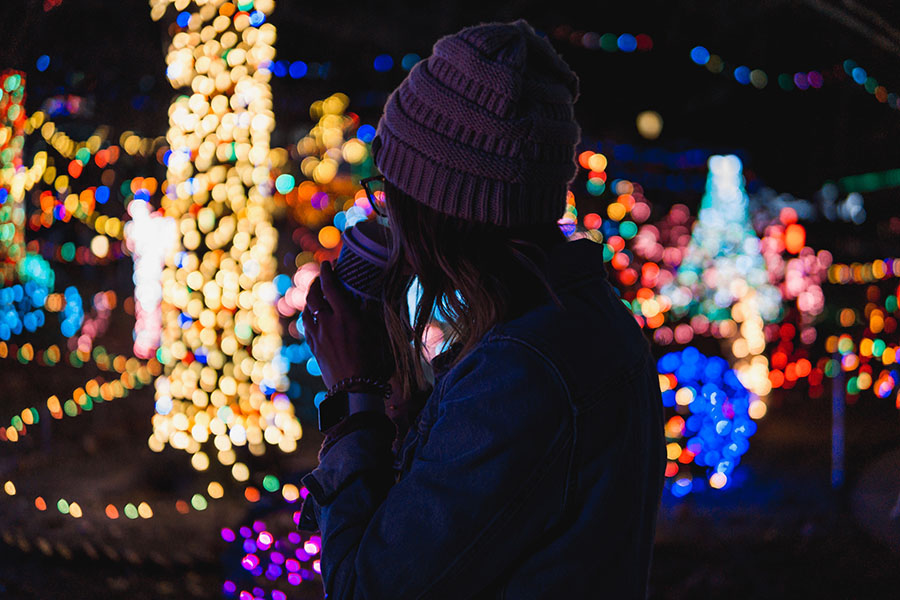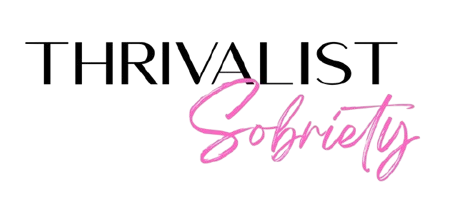
Your Guide to Getting Through the Silly Season Alcohol Free
In this blog we share eight powerful strategies to help you get through the silly season without drinking alcohol.
This time of the year can be a big test for anyone who isn’t drinking. The celebratory nature of the holidays is insidiously intertwined with drinking, with alcohol marketing in full force. There are more boozy events in the calendar than any other time of year, and we may feel mounting pressure to join in the festivities by drinking.
This blog gives you our tried and tested tips on not only making it through the silly season sober, but really enjoying it too.
1. Mindset
Make a rock-solid decision
If you go into the silly season with a “maybe I will, maybe I won’t, I’ll see how I feel when I get there” kinda attitude, you’re setting yourself up to drink.
If you really want to make it through the silly season sober, you need to decide in advance that you’re not going to drink. Use the mantra: not one drink, no matter what. We wrote about making a rock-solid decision to quit (even if you’re not quitting forever) here.
Expectations
Go in with realistic expectations:
-
It might be hard
-
You might have FOMO (fear of missing out)
-
You might feel resentful that others are drinking and you’re not
-
You might feel anxious
-
You might feel misunderstood
-
You might feel isolated or lonely
These feelings are okay. They are common when you’re adjusting to alcohol-free living and you don’t have a bunch of other non-drinkers around you in real life. You’re making a choice that isn’t mainstream and separating from the herd can be confronting and hard. But just because something is hard, doesn’t mean it isn’t right for you. Remember, it’s the hard things that bring the greatest rewards, and sometimes the best way to add to your life is to detract something from it.
Compassionate curiosity
Now you have recognised that the silly season in general and certain events in particular, may be hard, how can you make it easier? We recommend that the best way to go about this is to adopt an attitude of compassionate curiosity towards yourself when you’re feeling uncomfortable.
What does compassionate curiosity towards yourself mean? We break this process down in to three simple but powerful steps: :
-
Notice when you’re feeling uncomfortable, without judging yourself for feeling that way
-
Take a moment to label the feeling using “I am feeling” or “I am experiencing” statements, e.g. I am feeling anxious or I am experiencing anxiety. This language helps you to detach from the feeling instead of identifying with it (e.g. I am anxious), and to see the feeling as something that moves through you rather than who you are.
-
Shower yourself in love and compassion by giving yourself exactly what you need. For example, give yourself an internal pep talk “it’s ok to feel this way, this is new to you, you’re doing so well”, and then consider what you could do to make yourself feel more comfortable. Perhaps moving from a group conversation to a one-on-one or moving from inside to outside to get some fresh air. Lucy wrote a blog on Sobriety & Self Compassion that will help you prepare.
Reprogram the limiting belief that it’s only fun with alcohol
The hurdle that holds many people back from having fun in early sobriety is the limiting belief that “Life is not fun without booze”. You can overcome this by cultivating the belief that “it’s fun anyway”.
If a group of people or an event is boring without booze, that’s probably because it is boring. The opposite is also true. If a group of people or an event is fun, it’s fun whether or not alcohol is involved. You shouldn’t have to drink something fun.
When you change your mindset to “it’s fun anyway”, you’ll quickly find that you don’t need booze to laugh with friends or dance your ass off. I wrote more about that here.
2. Be selective about which events you say yes to
There are very few events that you actually have to go to. If you’ve been invited to something and you don’t feel confident that you’ll be able to make it through sober, guess what? You don’t have to go!
We love Laura McKowen’s pregnancy principle which encourages people in early sobriety to put their needs above everything else, just as a pregnant woman does. A pregnant woman has no problem turning down events to honour her and her baby’s needs. And the same goes for you and your newfound sobriety. Whatever you need to do, including saying no to things, is A-okay if it’s to protect your needs and your sobriety.
You might think this is a little selfish, but when making a monumental lifestyle change like going alcohol-free, you need to give yourself the green light to make your self-care your number one priority.
3. Be prepared
If you do want to go to an event, make sure you are over-prepared.
-
Visualise yourself enjoying the event without alcohol and being so proud of yourself afterwards for not drinking
-
Arrange your own transport so you can get out of there exactly when you want to
-
Take your own AF drinks or call ahead and ensure the venue has suitable AF options for you. We have compiled them all in one of our recent blogs here.
-
Know what you’ll say when people ask you why you’re not drinking
-
Have some tools in your toolkit for dealing with alcohol cravings
-
Get yourself a treat, like a healthy raw cacao dessert, to enjoy when you get home from the event
-
Make some beautiful hangover-free plans for the morning after.
4. At the event
-
Meditate or listen to positive affirmations in the car for a few minutes before going in
-
Make sure you always have an adult-looking drink in your hand to avoid the ‘can I get you a drink?’ question
-
Have a supportive person with you or in your pocket (i.e. a sober or supportive buddy who’s only a text or call away)
-
Take breaks if you need to (e.g. pop to the bathroom to do some breathing)
-
Get out of your head and focus on other people (ask lots of questions about them – people love talking about themselves! Or see if there’s anything you can do to help the host)
-
Don’t get involved with the alcohol (i.e. don’t order drinks for other people or carry drinks to them)
-
Leave when you want to, and don’t feel bad about ducking out without saying goodbye if you need to (you can always text important people later).
5. Once you leave
-
If you’re driving, revel in the fact that you’re driving home (a novelty for most newly sober people!)
-
When you get home, if you have kids, go and look at their sweet sleeping faces. You’ll be so happy you’re sober and will be waking up fresh for them tomorrow
-
Enjoy your well-deserved treat
-
Savour the experience of taking off your makeup, putting on luxurious face cream, getting into your pj’s and hopping into bed fresh. This can feel wonderfully indulgent if you, like me, used to pass out after a big night in your full battle regalia (clothes on, makeup on, probably on top of the covers!).
6. Watch out for the day after
It’s not unusual after getting through a big event sober, to experience off-the-charts cravings for alcohol a day or two later. This is due to willpower fatigue, meaning that you used up all your willpower reserves to stay strong at the event and now you’re vulnerable to the smallest triggers.
If you know about this in advance and it happens, it won’t come as a surprise. Something you can do to combat this is to proactively work on removing your desire to drink, which I wrote about here.
7. Make the most of not drinking
Being sober through the holidays is something I’ve come to LOVE. When I was drinking, I used to start every new year feeling sick, exhausted, sluggish, and bloated. Drinking through the holidays generally means we end the silly season less healthy and less rested than we went into it.
But when you do the silly season sober, you get to make the most of the restorative sleep and hangover free days. So, I encourage you to exercise when others are sleeping off their hangovers and choose nourishing foods while others overeat and soothe themselves with grease, salt and sugar.
By the time the new year rolls in, you’ll be feeling fabulous. And hopefully any FOMO you had going into the silly season will have alchemised into JOMO (the joy of missing out).
8. Celebrate and reward yourself
By getting through the silly season sober you’re doing something huge. You’re breaking old habits and building new neural pathways that will make getting through next silly season so much easier.
It’s important to acknowledge how hard you’re working at improving yourself and your life and to celebrate and reward yourself regularly. You’ll also be saving a stack of money by not drinking so you should feel justified in splurging on yourself. The options are endless. Book in for a massage, buy yourself a beautiful journal or 2021 diary, sign up for a course or coaching package that supports your personal development, buy yourself some gorgeous active wear or underwear, book yourself a holiday or a retreat… you get the idea.
In closing, be open to the idea that a sober silly season might just be the most fulfilling festive season you’ve had in years. You’re giving yourself the gift of presence. And you’re honouring your higher self by truly looking after yourself this year.

Post a comment